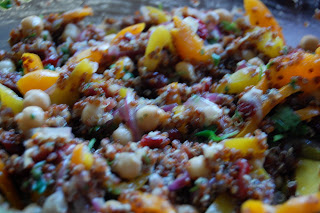Building supportive relationships
In the end, we are remembered via the relationships we leave behind.
I stand five-eight, no one’s depiction of “towering giant.” Someone of my stature is supposed to tip the scales at no more than 165 pounds. When I was 39 years old, I weighed 250. More frightening was that at such an early age, I experienced chest pains with regularity. As a father for two young sons, I was a ghost. My career was in free fall; my 12-year marriage was in tatters. (When your marriage counselor suggests divorce lawyers, the odds for regaining your long-lost marital bliss are slim.)
Change is born of fear, force, or pain. No one wakes up one fine day and says, “Wow! I really love my life; how am I going to change it?” Rather, unhappy, dissatisfied, and overwhelmed, we resolve to do virtually anything to alter our circumstances; anywhere is better than here.
For me, that conclusion came late one night, sitting alone yet again, pondering sorrowfully the source of my life’s despair. Out of that sadness came the painful realization that the common bond among all my troubles was ME. It was ME who relinquished the reins of my life, it was ME who helped build a dysfunctional marriage, and it was ME who chose to stuff myself, medicating the hurt by eating instead of fixing it. Therefore, if anyone was going to transform my life, it too must be ME.
On stressful days, instead of eating, I started walked. I saw a therapist and I attended weight loss meetings. With such support, I learned to focus on what was triggering the urge to eat and avoid it, rather than lamenting the unhealthful decision when it was a fait de compli. Reacting differently created calm and peace, which in turn lowered the desire to “medicate,” therefore causing weight loss and its resultant health and happiness.
My wife, noticing my enhanced outlook (and shrinking waistline) probed, “You’re planning on leaving me, aren’t you?”
I replied — honestly, “No. My plan is to become healthy. My sincere hope is you’ll come with me — but I am going either way.”
In the end, she opted not to.
When we alter our lives, step one is a conscious decision to do so. That’s obvious. In our newfound zeal, what is less apparent is that the choices we make not only affect us, but all with whom we interact; children, co-workers, spouses, partners, and friends; to name a few. Equally true is that their timetables and needs might be dissimilar from our own; and they might not necessarily be ready, willing, or desirous of pursuing that same objective. Some will choose to support us. Others will slow our progress, while still others will leave us.
The sometimes-painful adjustments we make to achieve our true potential are not excuses to avoid doing what must be done. Yet they remind us that being healthy also means being aware of the impact our decisions have on those we care about. It is a sad reality that relationships come — and sometimes they do go. The better ones remain for long periods while others of less consequence exist so briefly, we don’t even remember we had them.
As I told my children, “Compassion always; but don’t be confused, the price of giving up your dreams is higher than the cost of letting go of painful relationships. That said, do what you can to repair them before you let them go. Other people are involved.”
-
8 Steps to Make Your Weight Loss Program Successful
If I succeeded losing 80 pounds from 230 pounds, SO CAN YOU!Subscr
-
NLP To Assist Weight Loss
NLP can provide many methods to lose weight. Seven NLP tools have been
-
Staying Away from Fad Diets
With all the focus on weight in our society, it isnt surpri
-
Lose Fats Gain Confidence When You Lose Weight
How do I lose 5 kg or 30 kg?How do I gain some muscles and tone up sex
-
How To Reduce Belly Fat Without Extreme Diet
How to Reduce Belly Fat without extreme Diet? There is no point in exe
-
Vanadium Assists In Weight Reduction
Research in the area of diabetes and blood sugar disorders has found t
- DON'T MISS
- Do You Have This Essential Weight Loss Skill
- The Secret To Weight Loss is Body Type, a Doctor and Nutrition Expert Reveals
- Naturally Combating Hyperthyroidism And Involuntary Weight Loss
- Lose Weight Fast, And Keep It Off!
- The Brilliant Child Within! Moving past Your Comfort Zones
- 8 Ways to Lose Weight Without Trying
- 3 Ways to Drink Alcohol on Your Diet and Still Lose Weight
- Terrific Chest And Back Workouts From P90X
- The 12 Best Foods To Eat When You’ve Hit A Plateau
- Best Frozen Dinners For Weight Loss




